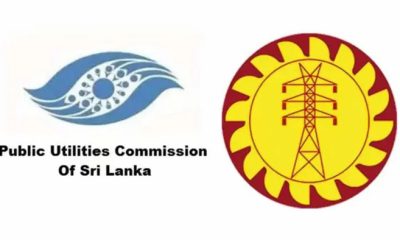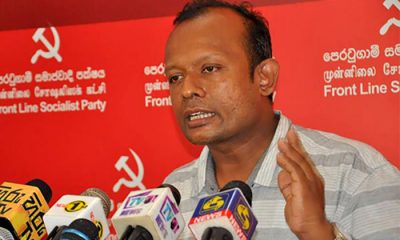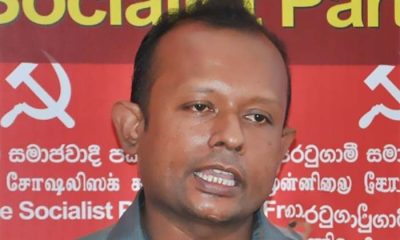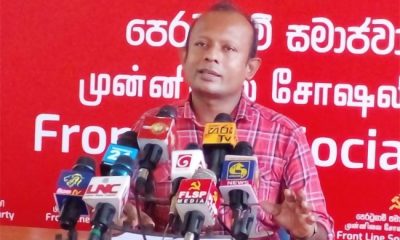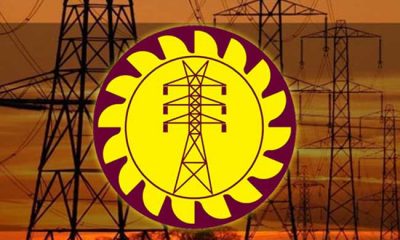News
FSP: CEB twisting stats to help advance govt. agenda
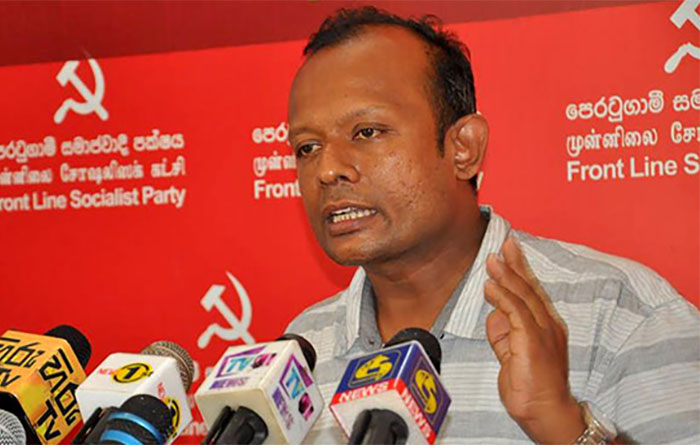
Even if the Ceylon Electricity Board (CEB) had not increased the tariff in October 2023, it would have made a profit of 40 billion rupees, Education Secretary of the Frontline Socialist Party (FSP), Pubudu Jayagoda said.
He added that the CEB can give a tariff reduction of 33 percent this year, given that it made a profit of 50 billion rupees in 2023 and because the estimates it has come up for 2024 are faulty.
“In response, the Minister of Power and Energy said that the CEB is making a profit and that he plans to distribute a part of the profit to the people. However, according to the laws that govern the CEB, this is an institution that should not determine prices in order to make a profit. The laws say that tariffs should be determined to cover costs in a just manner.”
Jayagoda said the CEB has determined that energy cost of generating electricity will be 351 billion rupees in 2024. This number was significantly lower in 2023, i.e., by 85 billion rupees. In 2023, the maintenance costs of power plants was 19.9 billion rupees. This has increased to 81 billion rupees for 2024. If we look at the distribution cost, it was 62 billion in 2023. In 2024, it will be 133 billion rupees.
“In 2023, the CEB had spent 21 billion rupees on salaries. This year, the salary bill is 43 billion rupees. All the data I have quoted is from a report the CEB sent to the Public Utilities Commission of Sri Lanka (PUCSL). How can the salaries double? There is no decision on a salary hike or bonuses by the government,” he said.
Jayagoda said that these numbers are used by the CEB to calculate the cost of production. Even if the salaries of all CEB workers are doubled, the estimated cost of salaries would be 42 billion rupees.
“Obviously, this kind of mammoth pay hike doesn’t take place anywhere. Why have they exaggerated numbers like this? It is obvious that the government wants to exaggerate the cost of production, increase tariffs and make a huge profit.”
Jayagoda said that last year, close to a million households have had their electricity disconnected. He said that there is a long-standing debate on whether electricity should be made a profit-making business or whether it is for public good.
“We can’t think of electricity supply from a business perspective alone. Now, electricity is a mainstay of daily life, and states provide electricity at a concessionary rate because it boosts productivity and quality of life. Imagine what a devastating impact the disconnection of electricity must have had on families,” the FSP Education Secretary asked.
In the last two years, 19,000 SMEs, too, have seen the power supply discontinued. The Minister of Power and Energy states that he has made the CEB profitable, but when one looks at the economy as a whole, the overall economy has suffered.
“The high electricity costs make our products less competitive, both domestically and internationally. I think we all agree that we need to boost our exports. How can we do that when electricity tariffs are this high?”
Jayagoda said that in the report to PUCSL, the CEB calculated finance cost for 2024 has gone up by 18 percent compared to 2023. This is not possible because the interest rates have gone down consistently in 2023 and 2024. RK
News
Prime Minister meets delegation from the European External Action Service
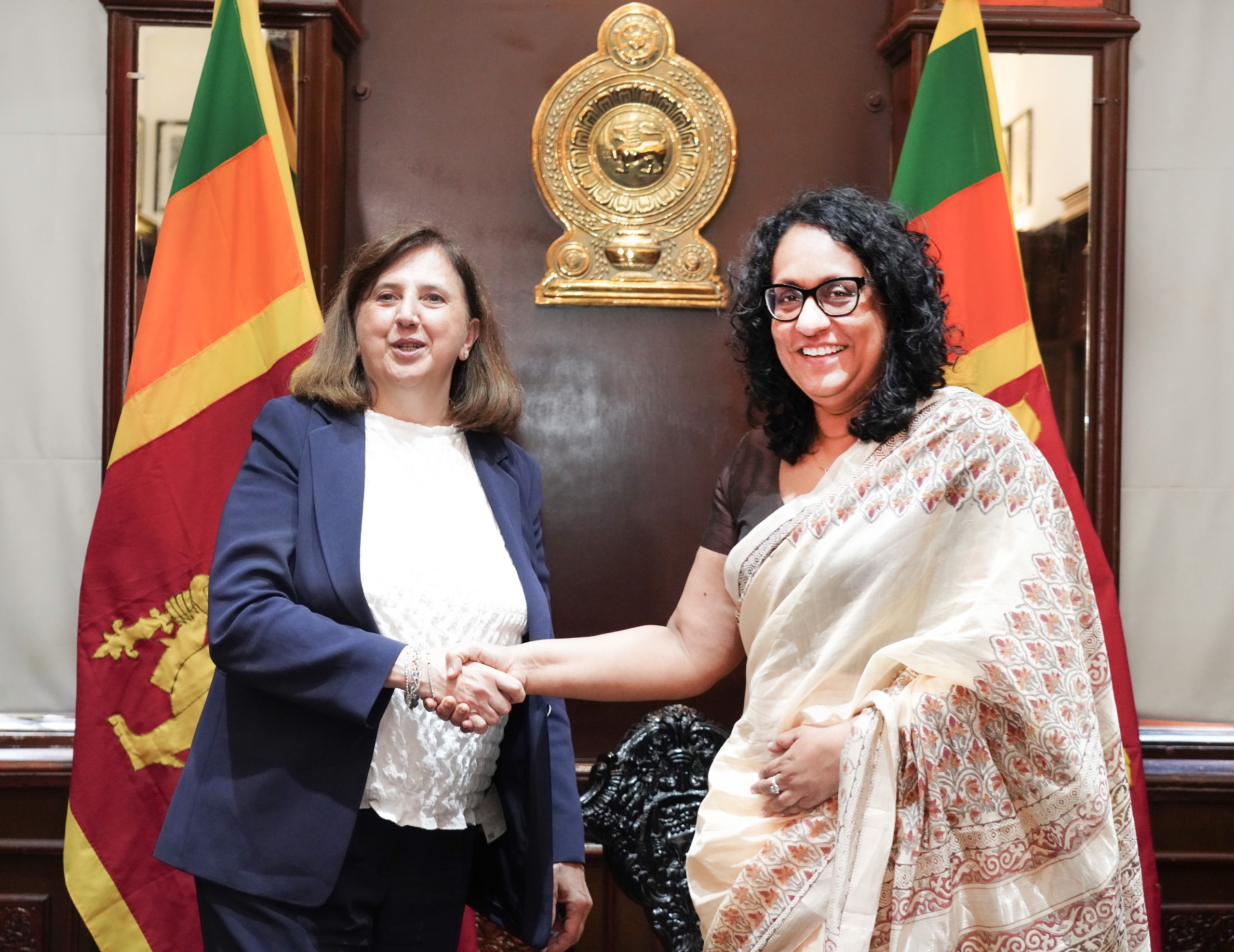
Prime Minister Dr. Harini Amarasuriya met with the representatives of the European External Action Service [EEAS] on Tuesdqy [10 th February] at the Prime Minister’s office.
Welcoming the delegation from the European External Action Service (EEAS), the Prime Minister emphasized the importance of further strengthening and deepening the long-standing partnership between Sri Lanka and the European Union, noting the role of the European Union as a key development and economic partner.
The Prime Minister also expressed appreciation for the timely assistance extended by the European Union to Sri Lanka in response to the recent cyclone, highlighting the EU’s continued solidarity and support during times of need.
Attention was drawn to the need to expand economic cooperation between Sri Lanka and the European Union. The Prime Minister underscored the importance of undertaking necessary legislative and policy reforms to facilitate enhanced economic engagement, trade, and investment.
The delegation was briefed on the ongoing initiatives and reforms being implemented by the new Government aimed at strengthening economic stability, governance, and creating a conducive environment for sustainable growth and international cooperation.
The meeting was attended by the Acting Managing Director for Asia and the Pacific in the European External Action Service, EU co-chair of the Joint Commission, Ms. Paola Pampaloni; EU Ambassador, Head of EU Delegation Ms. Carmen Moreno and the representatives of European External Action Services and Delegation of the European Union, and Additional Secretary to the Prime Minister, Ms. Sagarika Bogahawatta and the officials from the Ministry of Foreign Affairs, Foreign Employment, Tourism Sri Lanka.
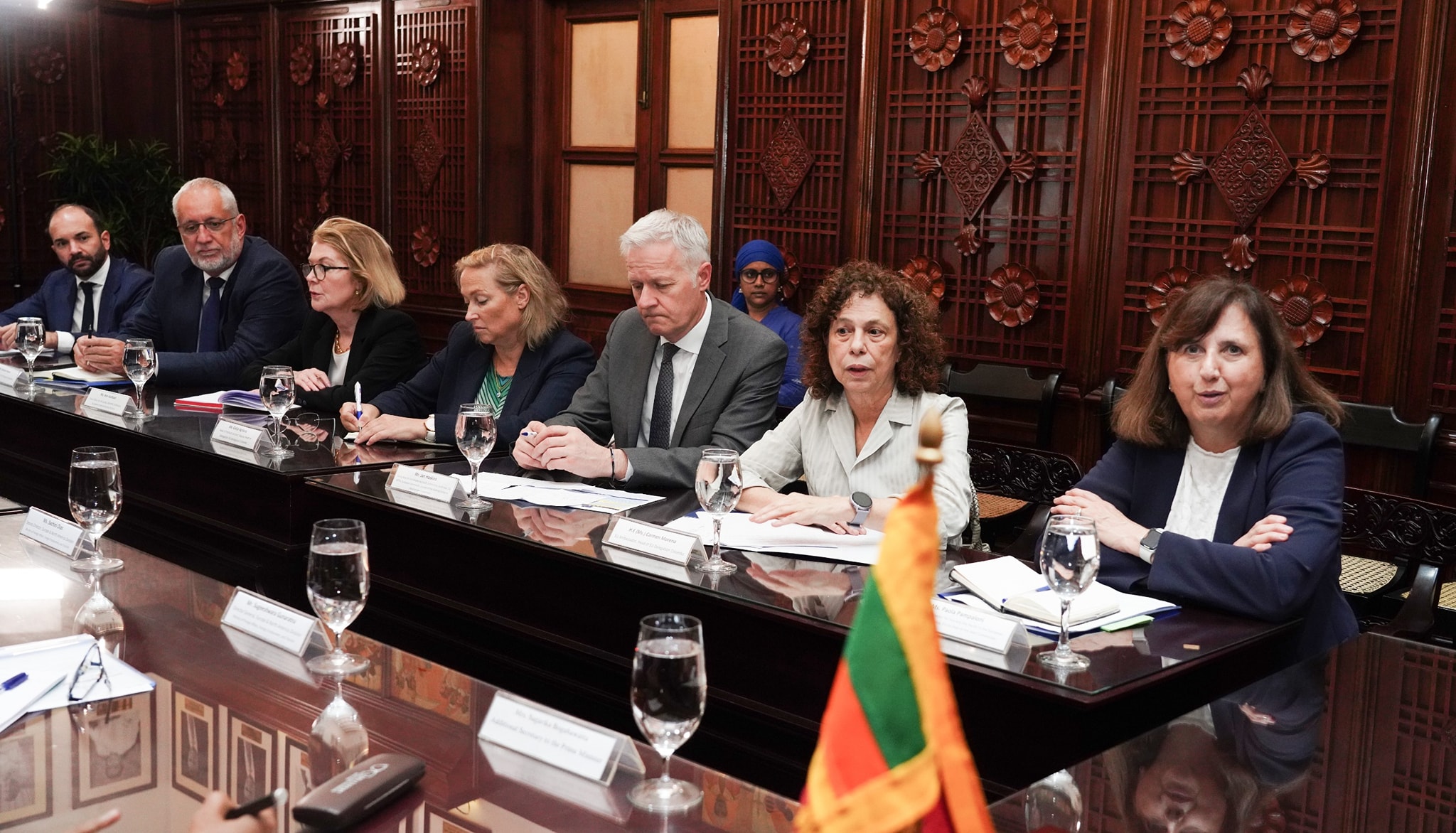
[Prime Minister’s Media Division]
Business
Newly appointed ADB Country Director to Sri Lanka and delegation meet PM
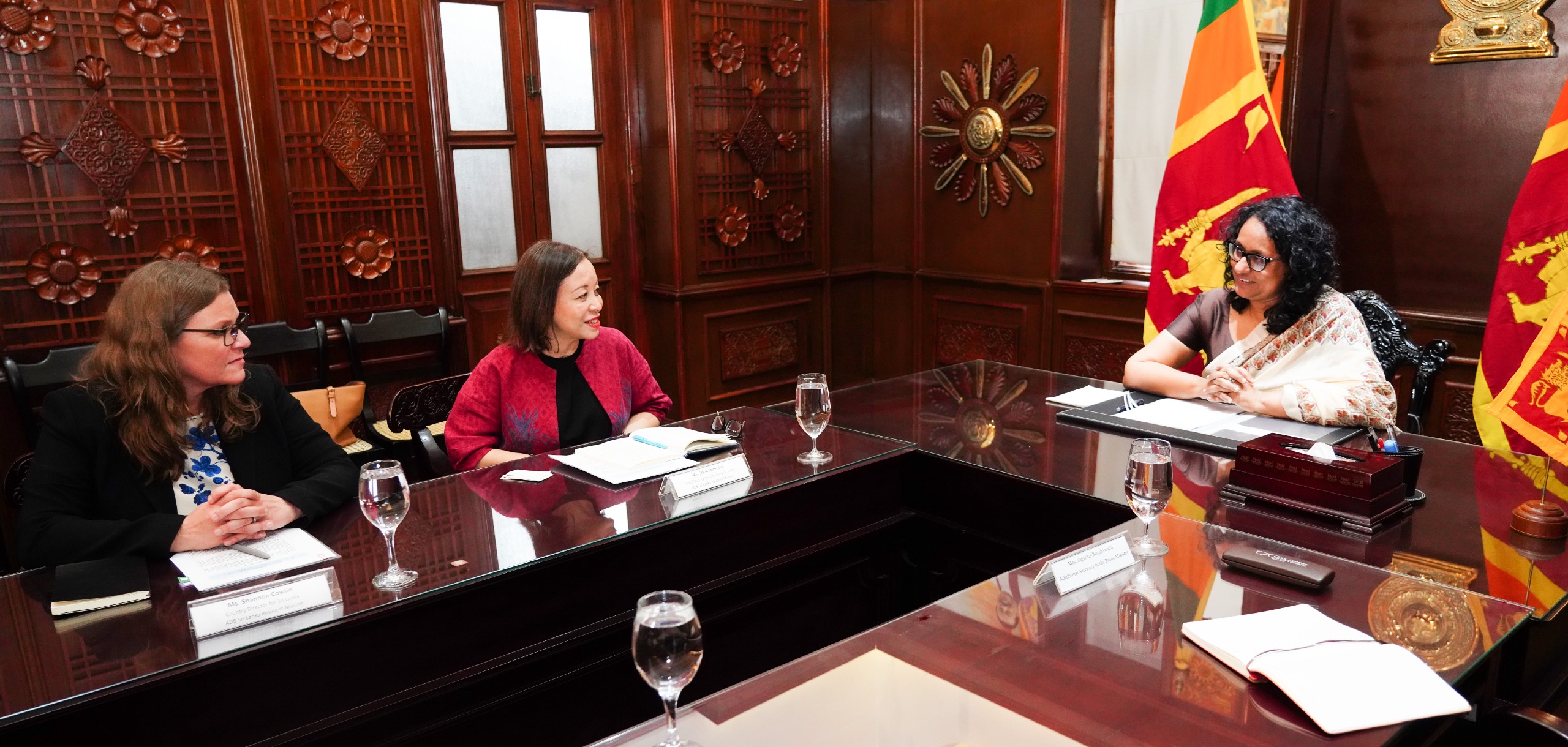
The newly appointed Country Director of the Asian Development Bank for Sri Lanka Ms Shannon Cowlin and the accompanying delegation met with Prime Minister Dr. Harini Amarasuriya on Tuesday [0th of February] at the Prime Minister’s office.
Welcoming the delegation, the Prime Minister extended congratulations to the newly appointed Country Director and acknowledged the long-standing partnership with the Asian Development Bank. The Prime Minister also expressed appreciation for ADB Bank’s continued engagement and support aligned with Sri Lanka’s national development priorities.
The Prime Minister also conveyed gratitude for the timely assistance extended by the ADB in response to Cyclone Ditwah, noting the importance of such support in mitigating the immediate impacts of natural disasters.
The ADB delegation reiterated its readiness to further assist Sri Lanka during the post-cyclone recovery phase, including rebuilding and reconstruction efforts, and emphasized its commitment to the supporting the education sector.
The meeting was attended by OIC / Deputy Director General, SARD Ms. Sona Shrestha, Ms. Cholpon Mambetova Country Operations Head of ADB Sri Lanka Mission Resident, Additional Secretary to the Prime Minister Ms. Sagarika Bogahawatta, Director General of the External Resource Department, Ministry of Finance Samantha Bandara, Director for ADB Division in External Resource Department, Ministry of Finance Ranjith Gurusinghe.
[Prime Minister’s Media Division]
News
School student transport services are being regulated
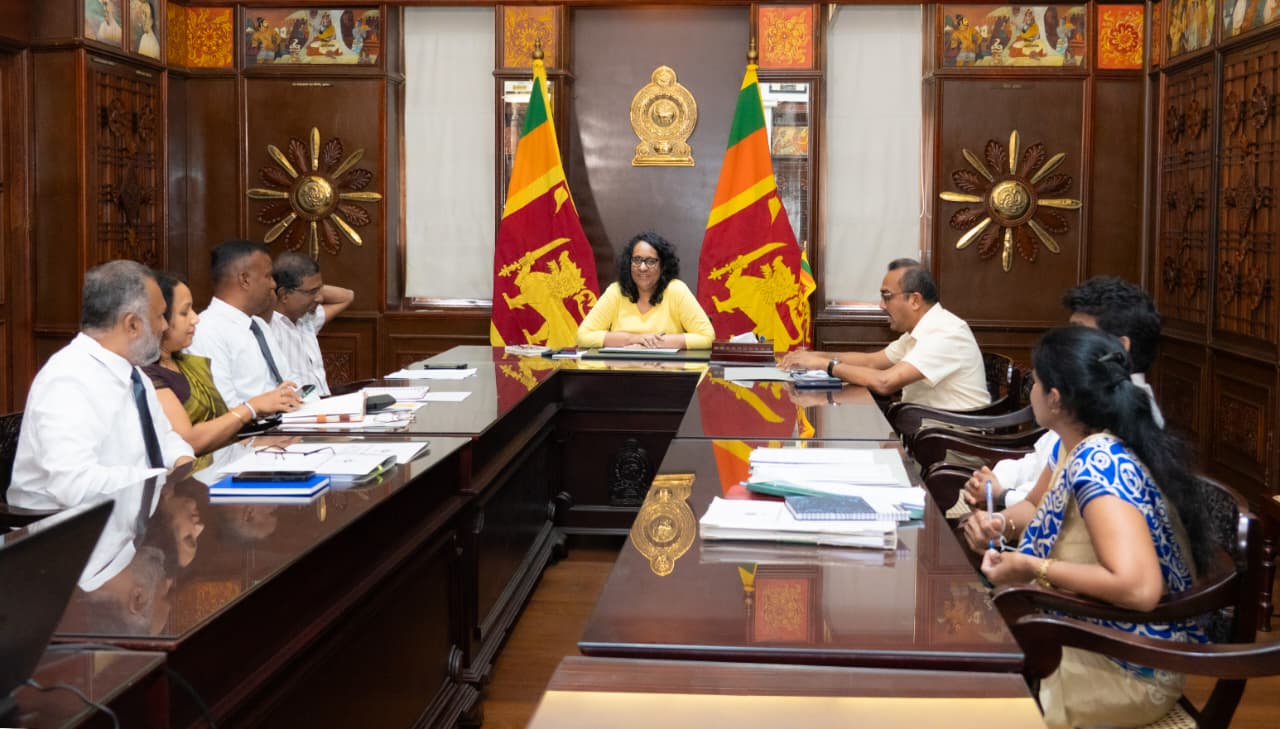
A discussion on regulating school student transport services was held on the 09th of February at the Prime Minister’s Office under the patronage of Prime Minister Dr. Harini Amarasuriya, with the participation of officials from the National Transport Commission and the Ministry of Education.
The authority for regulating school student transport has been vested with the National Transport Commission, and as the relevant draft of regulations have already been prepared, discussions were held on the provisions contained in these drafts as well as on new proposals that should be incorporated.
During the discussion, the attention was focused on meeting the emerging needs of transportation arising from the schools, minimizing issues encountered in the transportation of school students by establishing an organized transport mechanism, and deploying the “Sisu Sariya” school transport service in a more efficient and effective manner followed by the new educational reforms process.
Discussions were also held on introducing laws and regulations to systematize the transportation of schoolchildren, prioritizing child protection by preventing reported incidents of abuse and harassment during student transport, and enhancing professionalism among school transport service providers to ensure a responsible and accountable service.
The focus was also emphasized on the need for coordinated action among the Ministry of Transport, Highways and Urban Development, the National Transport Commission, the Ministry of Education, Higher Education and Vocational Education, and the National Child Protection Authority.
The discussion was attended by the Minister of Transport, Highways and Urban Development Bimal Rathnayake, Chairman of the National Transport Commission P. A. Chandrapala, officials of the National Transport Commission, and the officials from the Ministry of Education, Higher Education and Vocational Education.
[Prime Minister’s Media Division]
-

 Features5 days ago
Features5 days agoMy experience in turning around the Merchant Bank of Sri Lanka (MBSL) – Episode 3
-

 Business6 days ago
Business6 days agoZone24x7 enters 2026 with strong momentum, reinforcing its role as an enterprise AI and automation partner
-

 Business5 days ago
Business5 days agoRemotely conducted Business Forum in Paris attracts reputed French companies
-

 Business5 days ago
Business5 days agoFour runs, a thousand dreams: How a small-town school bowled its way into the record books
-

 Business5 days ago
Business5 days agoComBank and Hayleys Mobility redefine sustainable mobility with flexible leasing solutions
-

 Business2 days ago
Business2 days agoAutodoc 360 relocates to reinforce commitment to premium auto care
-

 Business6 days ago
Business6 days agoHNB recognized among Top 10 Best Employers of 2025 at the EFC National Best Employer Awards
-

 Midweek Review2 days ago
Midweek Review2 days agoA question of national pride


